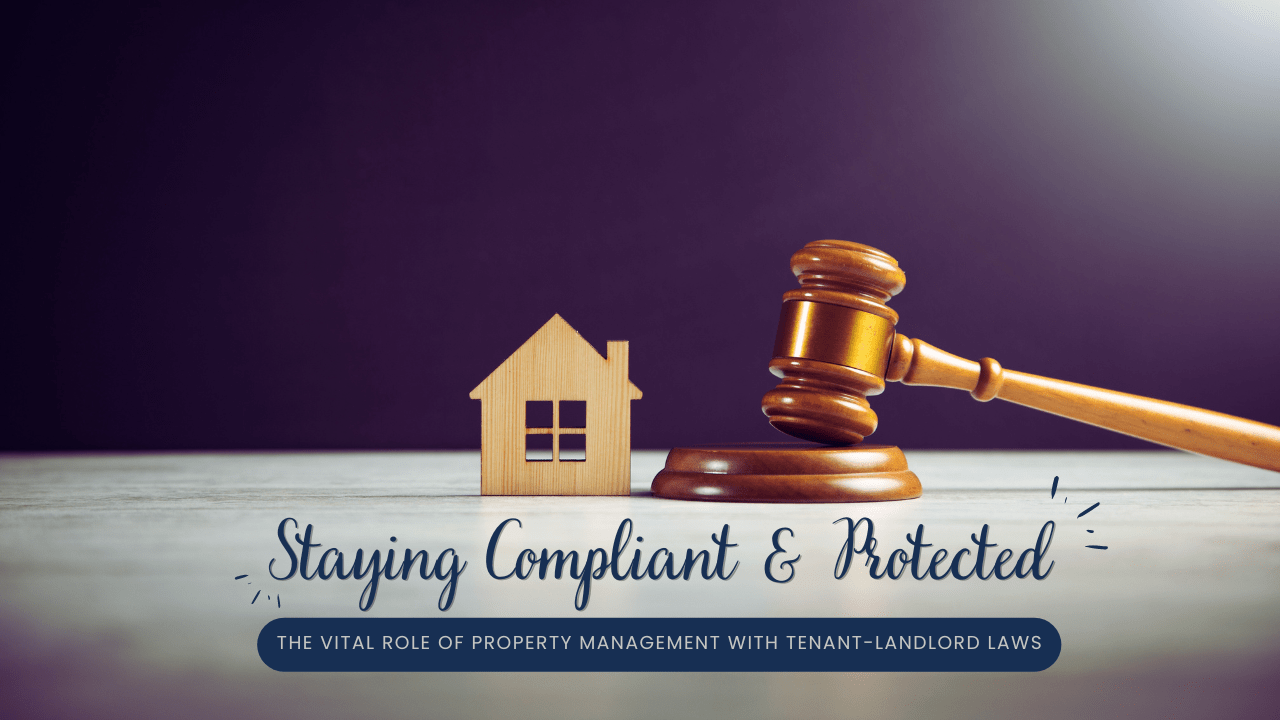Rental property owners in Los Angeles and throughout Southern California need to think about how comfortable they are with their own legal knowledge. Do you understand rent control and just cause eviction laws thoroughly? Are you aware of the differences in the state fair housing laws versus the federal fair housing laws?
What about recent legislation? Have you kept up with the latest information on security deposits, service and support animals, and habitability standards?
It’s surprisingly easy to make a legal mistake in California when you’re renting out a home. The laws continue to change, and California has a reputation for being one of the most tenant-friendly states in the country.
Property management plays a vital role in protecting you and your property. If you don’t have the time or the resources to stay up to date on all the latest laws and their interpretations, make sure you’re working with a Los Angeles property management partner. Otherwise, you’re putting yourself in a lot of financial and legal jeopardy.
Property Management Provides a Legally Compliant Lease Agreement
California law requires that your lease agreement include specific terminology. The lease must come with an implied warranty of habitability, and it has to address whether your rental property is subject to or exempt from the statewide rent stabilization law that went into effect in 2020.
Do not try to put together a lease agreement based on templates or samples you find on the internet. These are not necessarily leases that have been written for California’s laws. In order to be sure your lease is enforceable in Los Angeles and compliant with all California laws and requirements, you want to have it reviewed by a local attorney or a Los Angeles property manager.
Recent Laws Los Angeles Property Managers Follow
By now, most of you are likely comfortable with The Tenant Protection Act of 2019. You have grown accustomed to the just cause eviction guidelines and you have at least a basic understanding of rent control and how much you can and cannot raise the rent.
Recently, new laws have gone into effect and because they are not as attention-grabbing as rent control or eviction, you may not have noticed that there are new requirements in place for rental property owners. This is where a property management relationship is so beneficial; we have been following the laws carefully, and here are some updates you need to know.
SB 1383 and Organic Waste
New recycling laws have gone into effect, and if you own a multi-family property with five or more rental units, you are required to dispose of organic waste separately and in accordance with state law. A lot of the owners we have been consulted with were not even sure of what qualifies as organic waste. Here is what the law identifies as organic waste:
Food and food scraps
Green material and compost
Landscape and pruning items
Organic textiles and carpet
Lumber and wood
Paper products including printing and writing paper
Manure
Biosolids
Digestate
Sludge
If you don’t have a property manager walking you through the requirements of this law, make sure you have subscribed to the city’s curbside collection service for organics. Otherwise, you will be required to haul the waste to a composting facility.
Your building needs a container that’s correctly labeled. You must provide the composting information on organic waste collection to your residents within 14 days of them moving into your rental unit.
AB 838 and Habitability
The Implied Warranty of Habitability has always been part of California law, but now AB 838 enforces existing habitability standards by requiring a city or county to investigate any habitability complaints from residents.
Cities cannot decide to ignore a complaint that they might consider more of a nuisance than a legitimate concern. Instead, they must communicate with residents who file the complaint and reasonably enforce the state housing laws that speak to habitability.
Unpaid Rent
Some good news: landlords have a bit more flexibility in suing for unpaid rent. If you don’t have a property manager letting you know that this is the case, you could be missing out on some overdue rental payments.
Landlords are permitted to sue their tenants for any unpaid rent from the end of 2021. If you have residents with balances, you can make an effort to collect them. You can even take those tenants to court in order to get your past rents paid.
It’s as simple as starting a small claims case. If you show up for court and the judge rules in your favor, your tenant can still appeal the decision and get a new trial. Once the appeal has ended with the same judgment, you can get an order to collect your unpaid rent.
AB 468 and Support Animal Documentation
Have you ever had to lean on your property manager for help with service or support animals?
You’re not alone. The Fair Housing Act and the Americans with Disabilities Act (ADA) prohibits discrimination against tenants or applicants who have disabilities. There has been a rise in the need for companion animals, most commonly emotional support animals. These animals are different from service animals, but they’re also not pets. They’re protected accommodations that tenants can request - even if you don’t allow pets. Emotional support animals would be exempt from a pet fee, pet deposit, or pet rent.
For a long time, landlords have claimed it’s too easy for tenants to get away with claiming a pet is a support animal. AB 468 went into effect on January 1, 2022. This law requires that any licensed physician who provides documentation about an individual’s need for an emotional support animal must have an established relationship with their patient. That relationship must have been established for at least 30 days in order for the documentation to be accepted. The physician must also complete an in-person clinical evaluation of the individual who requests the emotional support animal.
Los Angeles Property Management and Security Deposit Law
Most of the disputes, claims, and legal mistakes that we see revolve around the security deposit.
It’s risky for independent landlords to manage security deposits on their own. A complaint from the tenant at the end of the lease over what you’ve withheld, and you can find yourself hauled into court to explain yourself and justify your deductions.
Property managers reduce your risk. We have processes in place to protect ourselves and our owners, and we also have years of experience that help us decide whether we’re looking at wear and tear or property damage when we’re making deductions.
Security deposit laws are complex, and you’ll want to make sure your process of collecting, holding, and returning a security deposit is well-documented. Here’s what you need to know:
There’s a limit to what you can collect in a security deposit. Los Angeles landlords may collect up to the equivalent of two months’ of rent for an unfurnished property. If you’re renting out a furnished home, that limit goes up to the equivalent of three times the monthly rent.
Security deposits are always refundable in California.
You have 21 days from the date that your tenant moves out to return the security deposit and/or an itemized accounting of why money was withheld and what it’s being used for.
Remember what you can and cannot use the deposit to cover. You can use the deposit for damage, unpaid rent, and unpaid utilities. You can use it to clean the unit. You cannot use the security deposit to make repairs and replacements that are normal wear and tear items. When you do withhold money from the deposit, make sure you can document why it was withheld. Your move-in and move-out inspection reports will be critical.
Fair Housing and Southern California Property Management
 Bell Properties California will ensure you do not make any fair housing mistakes. When you have an experienced professional overseeing the advertising, screening, and management of your property, there’s less risk that you will do or say something that could be perceived as discriminatory. Property managers have objective, consistent processes in place for this very reason.
Bell Properties California will ensure you do not make any fair housing mistakes. When you have an experienced professional overseeing the advertising, screening, and management of your property, there’s less risk that you will do or say something that could be perceived as discriminatory. Property managers have objective, consistent processes in place for this very reason.
Bell Properties understands the Federal Fair Housing Act. We follow the Fair Credit Reporting Act and the Americans with Disabilities Act. These are important laws that show you exactly what you can and cannot do when it comes to renting out property to tenants.
Once you’ve familiarized yourself with the federal laws, turn your attention to the state laws. When it comes to fair housing, California’s laws are stricter, and they cover more protected classes. California’s fair housing laws prohibit discrimination when it comes to leasing, screening, and managing your rental property based on:
Race
Skin color
Religion or creed
National origin or ancestry.
Sex
Physical or mental disability
Familial status
Sexual orientation
Age
Gender identification
Gender expression
Veteran or military status
Citizenship
Primary language
Marital status
Source of income
Genetic information
This list is always evolving. It is essential that when you rent out a property, you keep up on all fair housing laws at a state, local, and federal level.
As you can see, the rental laws can be complex and even overwhelming. We’ll make sure there aren’t any mistakes or potential claims and lawsuits against you. Don’t try to navigate California’s landlord and tenant laws without professional help. Contact us at Bell Properties for more information.


